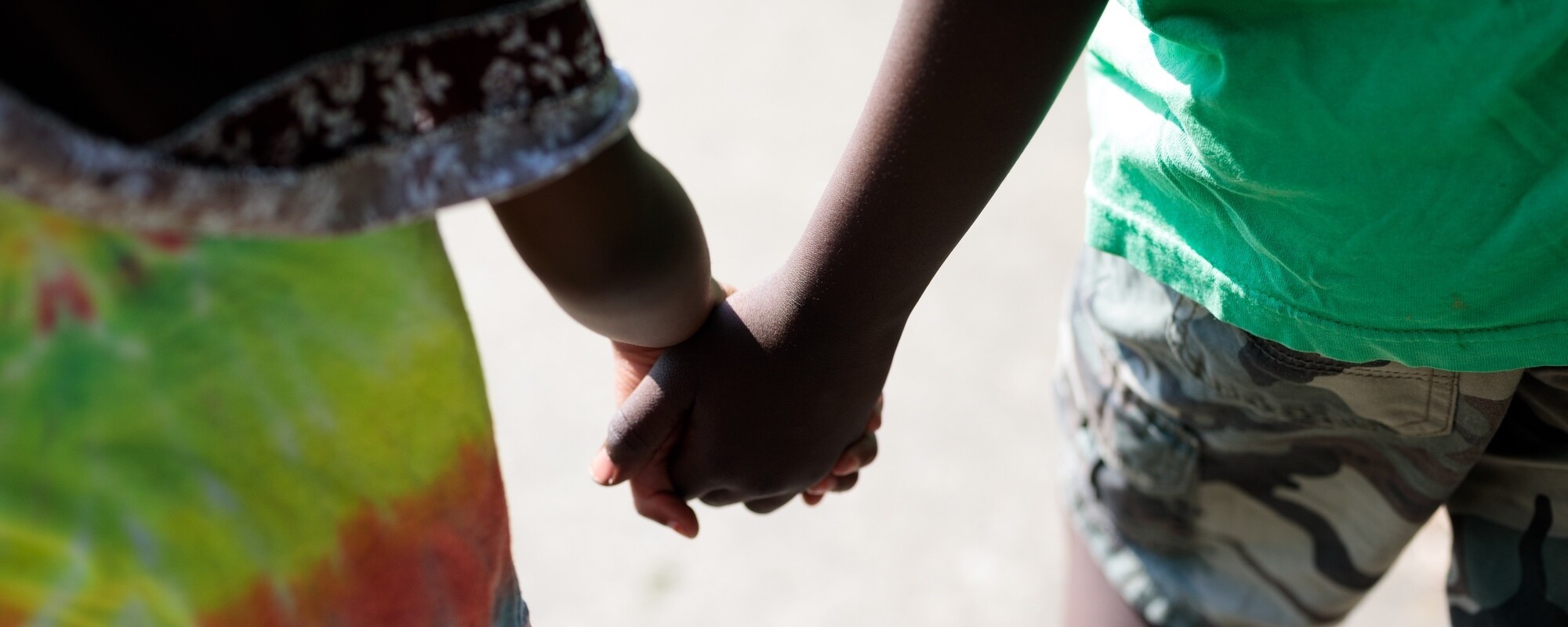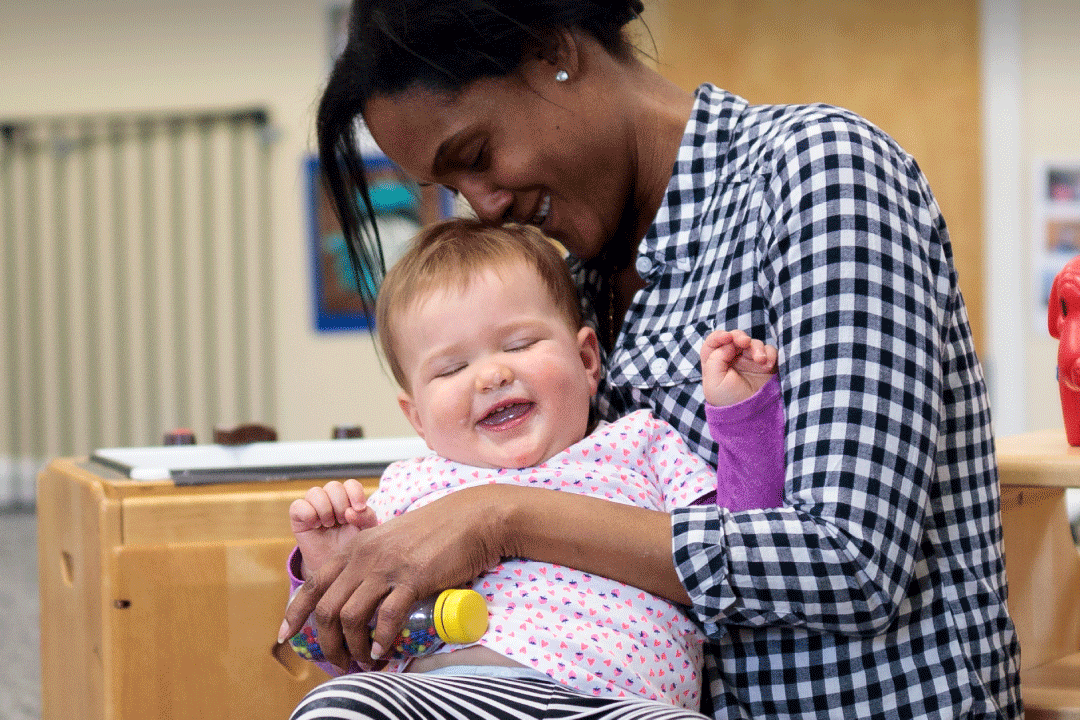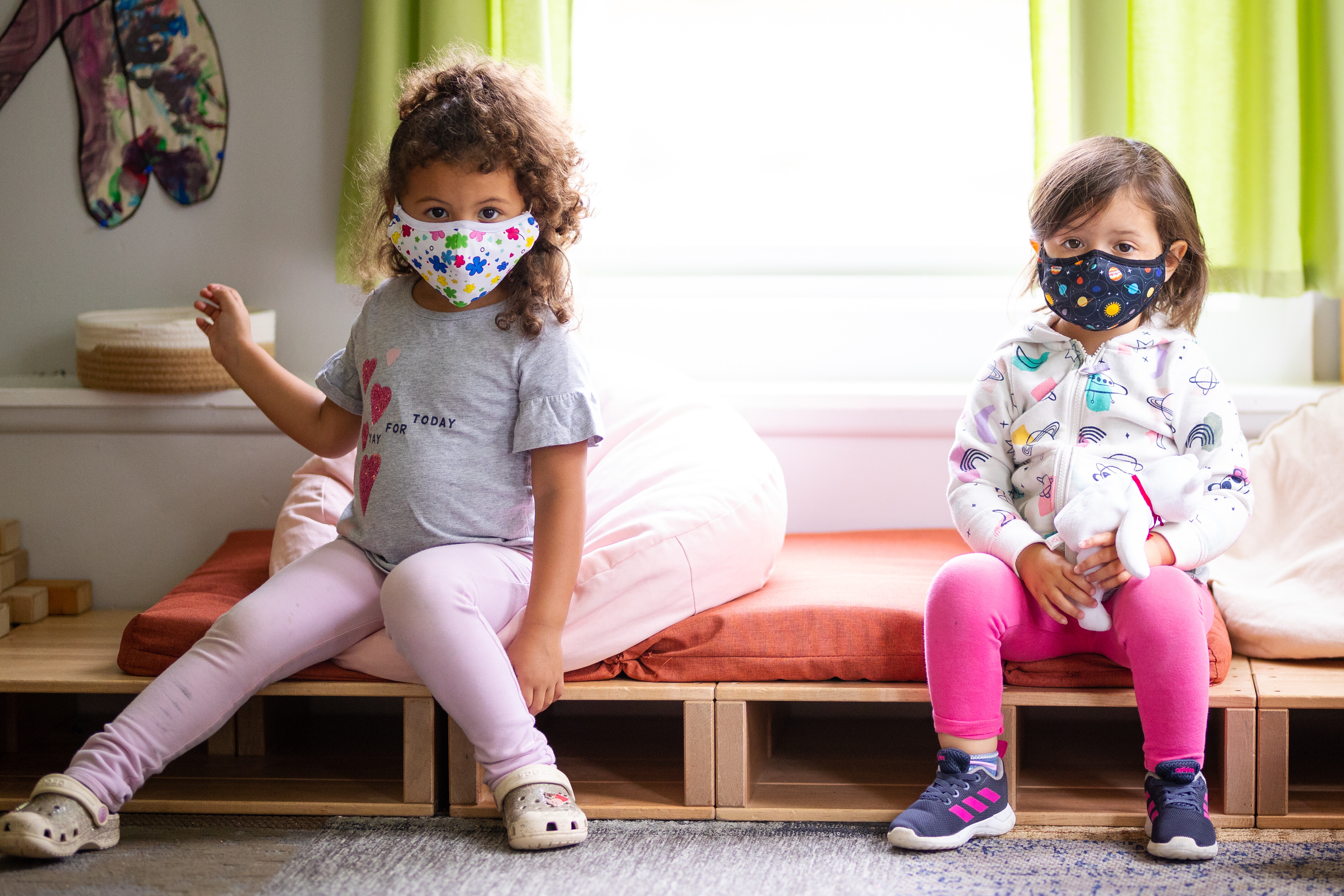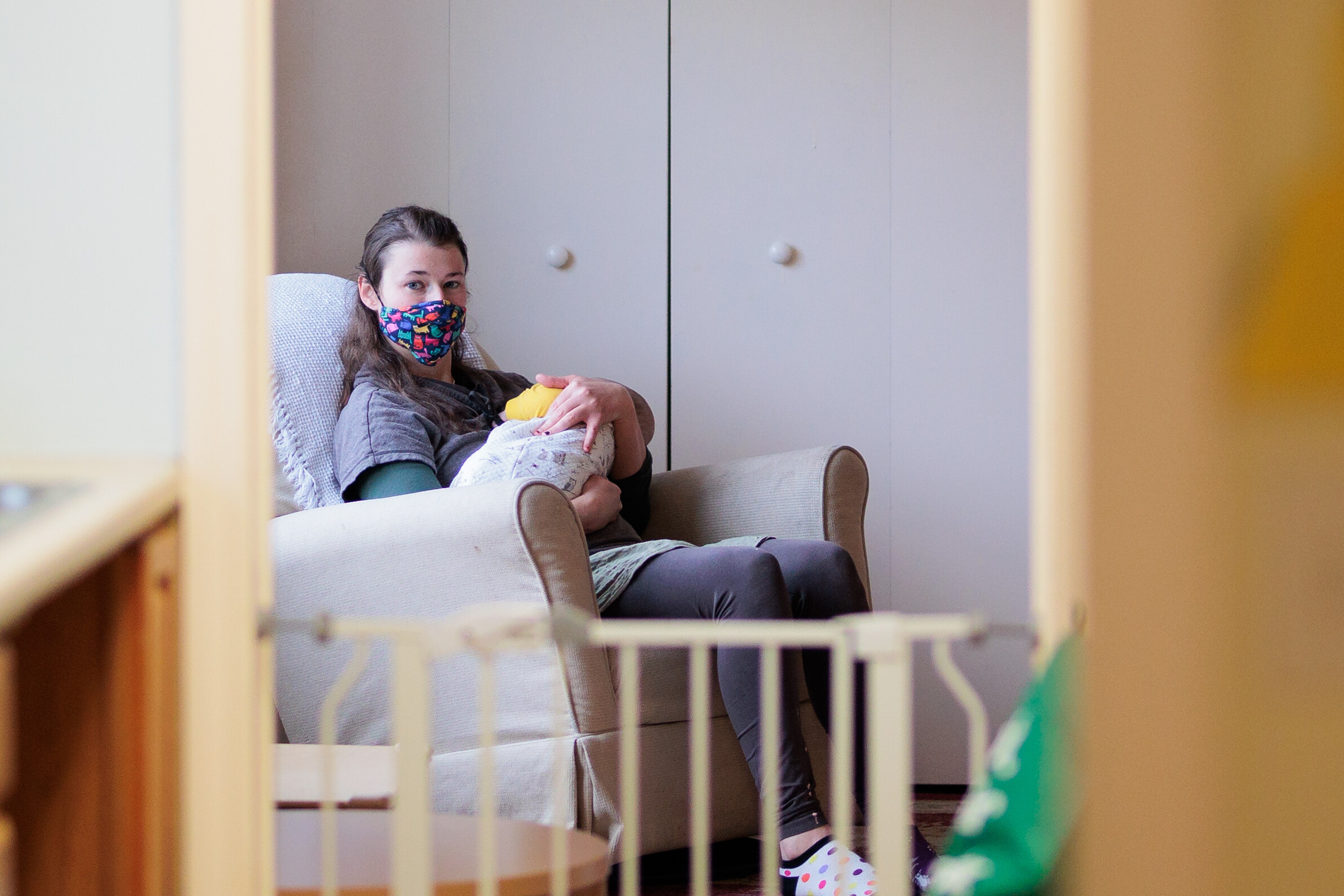
Our Commitment to Anti-Racism
We commit our organization, our movement, and ourselves to being anti-racist in all aspects of our work, to use our platform to raise Black voices, and to create an equitable early childhood education system that advances racial justice for the next generation of Vermonters. We commit to listen actively, to learn openly, and to examine and question our privilege and tolerance of systemic racism, in order to disrupt structures of oppression. We've curated the resources below, many of which we are using as individuals and as an organization to uphold our pledge to be part of the solution.
• The Children's Equity Project (CEP) The CEP focuses on closing opportunity gaps and dismantling systemic racism in learning settings to ensure that children reach their full potential. Their work is at the intersection of research, practice, and policy and focuses on a range of equity issues in the early years and the early grades.
• Anti-bias Leaders in Early Childhood Education Louise Derman-Sparks and Debbie LeeKeenan, widely known and respected leaders in bringing anti-bias to early childhood education, gave the keynote at the anti-bias themed section of Vermont’s Early Childhood Education Conference in September of 2021. LeeKeenan is a co-producer and Derman-Sparks is senior advisor for the new short film (48 minutes) Reflecting on Anti-Bias Education in Action: The Early Years. It features vignettes of anti-bias strategies in early childhood classrooms interspersed with teachers reflecting on their practice. Follow the link above to learn more about them, the film, and other resources they have developed.
• Advancing Equity in Early Childhood Education This statement details NAEYC’s position regarding the importance of equity in early childhood education. It then provides recommendations for advancing equity, beginning with recommendations for self-reflection that apply to everyone.
• Moving Upstream: Confronting Racism to Open Up Children’s Potential This brief, released by Harvard’s Center on the Developing Child, discusses how racism creates conditions that harm the well-being of children and families, and the need to go “upstream” and create policy solutions to address the source of structural, cultural, and interpersonal forms of racism.
• How Policy Can Maximize Children’s Potential by Addressing Systemic Racism A guest post on the EdNote blog from Al Race, Deputy Director and Chief Knowledge Officer at the Harvard Center on the Developing Child.
• Equity Starts Early: Addressing Racial Inequities in Child Care and Early Education Policy This brief, published by the Center for Law and Social Policy, provides demographic and historical context for creating racially equitable early childhood policies and analyzes policy issues related to access, quality, and the early childhood workforce.
• Start with Equity: From the Early Years to the Early Grades The Children’s Equity Project and the Bipartisan Policy Center have come together to create an actionable policy roadmap for states and the federal government—as well as for candidates at all levels of government vying for office—to take meaningful steps to remedy the inequities in early learning and education systems.
• Why Early Care and Education is Foundational to Advancing Racial and Gender Equity The Low Income Investment Fund explores the effects of inequity in the ECE field on families, teachers, and children.
• Join or donate to the local chapter of the Black Lives Matter movement, a global organization whose mission is to eradicate white supremacy and build local power to intervene in violence inflicted on Black communities by the state and vigilantes.
• Support local organizations that celebrate Black voices like the Clemmons Family Farm, JAG Productions, and the Rokeby Museum.
• Donate to the Association of Africans Living in Vermont, which helps new Americans from all parts of the world gain independence in their new communities through a range of integration services so that they are able to smoothly transition to living and working in Vermont.
• Support the Vermont Professionals of Color Network, which is building a community and network that promotes, supports, and affirms People of Color in a way that helps them succeed personally and professionally.
• Join ACLU's Vermont chapter by signing its petition to create a smarter justice system in Vermont that reduces the number of people incarcerated by the state and eliminates the disparities that exist in our criminal justice system.
• Review the Vermont Commission on Women's and the Vermont Network's list of racial justice organizations and then get involved and take action.
• Continue to support Let's Grow Kids' work to build an early childhood system that promotes equity and diversity by getting involved in your local community, influencing your legislators, or helping to fund our efforts to strengthen the early childhood system.
• Coming Together: Standing up to Racism. Town hall discussion moderated by CNN and Sesame Street's Big Bird to help families talk about racism and the recent nationwide protests, with a focus on fostering empathy and embracing diversity. Elmo, Abby Cadabby, Rosita and other experts helped answer questions submitted by families.
• The White Parent's Guide to Raising Anti-Racist Kids. This Parents.com article offers seven ways white parents can have meaningful conversations with their white children about race.
• Raising Antiracist Kids: Empowering the Next Generation of Changemakers. Discussion about raising anti-racist children with author Derecka Purnell and Ibram X.Kendi, author of the new book, AntiRacist Baby.
• Talking to Young Children About Race and Racism. PBS offers a variety of resources including TV specials, article suggestions, book recommendations, and a virtual video discussion on “Talking to Children Authentically About Race and Racism.”
• Five Ways to Reduce Racial Bias in Your Children. This article from UC Berkeley's Greater Good Magazine provides research-based suggestions for parents to help reduce negative bias in their children.
• Anti-Racism Resources for Parents and Kids. Healthline Parenthood's collection of anti-racism resources including books, podcasts, TV, and film.
• How Silence Can Breed Prejudice. In this Washington Post article, a child development expert explains how and why to talk to children about race.
• The P.R.I.D.E. (Positive Racial Identity Development in Early Education) Program from the University of Pittsburgh has a rich collection of resources for teachers of young children including podcasts, the Teacher's Corner, where early educators discuss race in the classroom and a P.R.I.D.E. Research page that features helpful research findings on how parents and teachers affect a child's feelings about race.
• The National Association for the Education of Young Children has some great resources including this article on teaching and learning about race and racism with young children and families and two books that highlight race entitled Anti-Bias Education for Young Children and Ourselves and Each and Every Child: Teaching Preschool with an Equity Lens.
• Lee and Low Books is a multicultural children's book publisher with many titles for all classrooms by grade level.
• Social Justice Books: A Teaching for Change Project has a curated list of multicultural and social justice books for children, young adults, and educators. Its website also features a blog and a guide to selecting the right book for all conversations.
• Raising Race Conscious Children offers a list of 100 Race-Conscious Things You Can Say to Your Child to Advance Racial Justice, which includes prompts and ways to continue conversations with an equity lens during play when we are talking with children.
• The Vermont Agency of Education's Early Education webpage features some great resources on anti-bias education, culture diversity and equity, as well as its guiding principles that articulate Vermont's commitment to inclusion in early education.
2018 AND 2019
• Created staff “Change Team" after racist events in Charlottesville to identify ways for LGK to more fully advance equity in our organization, movement, and early childhood education
• Adopted LGK inclusion statement that was drafted with staff and leadership input and approved by the board
• Revised LGK hiring policies and practices in line with best practices for equity
• Hosted multi-part staff training on implicit bias and racial equity with full-day all-staff retreat
2020
• Offered public statement of solidarity after murder of George Floyd
• Created an anti-racism resources webpage
• Made grants totaling $10,000 to Vermont organizations tackling racism and lifting Black voices through a staff-led research and decision-making process
• Drafted equity framework for LGK staff to use to assess—and improve—LGK programs, policies, and practices
• Created three staff committees to tackle three initial priorities:
1. Implement an outreach and engagement strategy to ensure LGK includes, listens to, and represents the needs of Black Vermonters and people of color in all parts of our movement
2. Examine and articulate connection between high-quality early childhood education and racial justice, and adjust our programs and policy recommendations accordingly
3. Advance sustainable strategies to support early childhood educators in creating anti-racist child care programs
2021
• Continue to invest in diversity, equity, and inclusion education and professional development opportunities for all staff, leadership, and board.
• Continue to invest in and improve inclusivity strategies throughout our community engagement initiatives in order to deepen, strengthen, and diversify external partnerships and relationships, and empower Vermont communities.
• Continue to invest in and support programs and initiatives that support a strong, diverse, and inclusive early childhood education workforce in Vermont that is steeped in anti-biased education.
• Invest in and advocate for data collection tools and systems in order to inform and support the development of an equitably accessible child care system that meets the needs of Black and Indigenous children and other children of color, as well as BIPOC families, businesses, and communities.
2022
• Launched a study in collaboration with UVM faculty and students to source perspectives from early childhood education preparatory program participants on how best to strengthen the profession’s ability to attract and retain a more diverse workforce of early childhood educators.
• Captured via survey families of colors’ and families of children with disabilities and special health needs respective experiences navigating Vermont’s child care system.
• Hosted conversations with families of color and families of children with disabilities and special needs to more deeply understand how the current child care system meets and does not meet their respective needs.
• Convened a Families of Color Advisory Committee for Racial Equity in Child Care Policy to gather feedback on and incorporate input into policy proposals to reflect the experiences of families that are historically marginalized and underrepresented.


